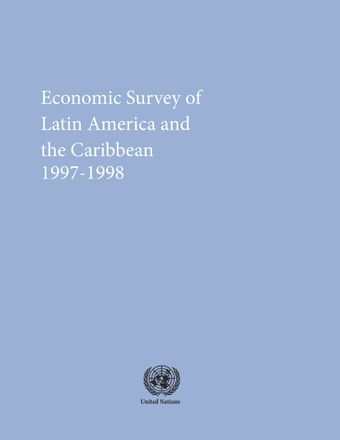Brazil

- Author: Economic Commission for Latin America and the Caribbean
- Main Title: Economic Survey of Latin America and the Caribbean 1997-1998 , pp 147-159
- Publication Date: December 1998
- DOI: https://doi.org/10.18356/44cbe47a-en
- Language: English
In 1997 the Brazilian economy grew at the same rather sedate pace (3%) as the year before, while the continued progress of the stabilization process was reflected in the lowest rate of inflation (4.3%) to be recorded in the last 50 years. The deficit on the country's external accounts deepened further, but the copious inflow of external resources provided enough financing to cover the shortfall. Nevertheless, the size of this deficit (the equivalent of over 4% of GDP) and the failure to move more quickly in carrying out a thoroughgoing adjustment in public-sector accounts have placed the country in a highly vulnerable position, as became evident in late October when the Asian crisis began to have a stronger impact on Brazil's economy (primarily in the form of voluminous capital outflows). The adoption of corrective measures and the severe deterioration in the external situation triggered an economic slowdown and pushed the unemployment rate up slightly. The Government did succeed, however, in checking the rapid descent of international reserves, and in the first half of 1998 it actually managed to reverse this trend altogether. The prospect of general elections in October complicated the situation further, since, depending on the outcome, they could spell changes in the course of economic policy.
-
From This Site
/content/books/9789210582971s003-c003dcterms_title,dcterms_subject,pub_keyword-contentType:Journal -contentType:Contributor -contentType:Concept -contentType:Institution105



